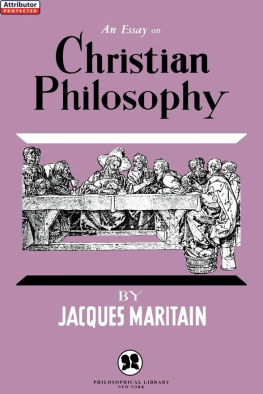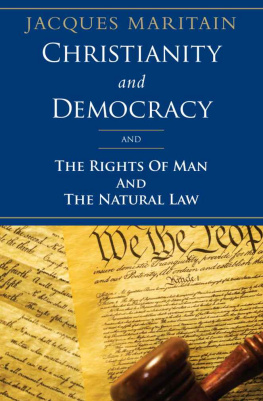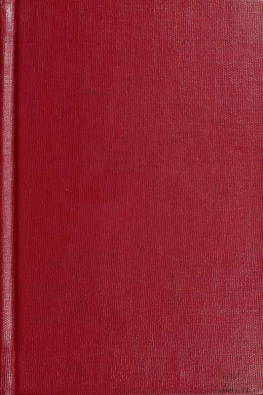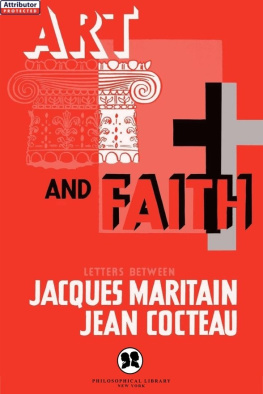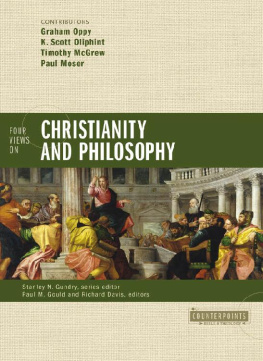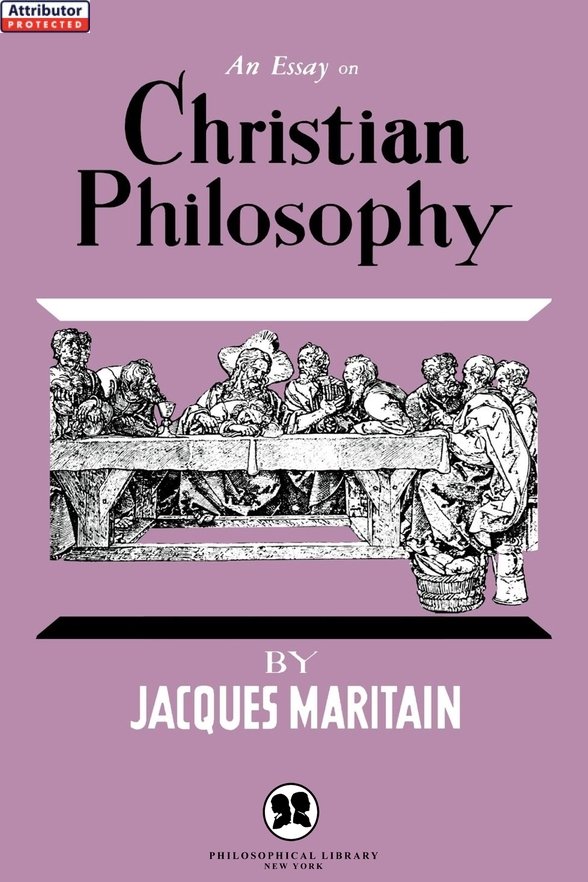I
On the Nature of Apologetics
(Clarification on Mr. Blondels Position)
In this note I propose to sum upfor the most part by simply translating the Latin text itselfand to comment briefly on a few theses on the nature of apologetics advocated by Father Garrigou-Lagrange in his work De Revelatione.
1. As a rational defense of divine revelation, apologetics proceeds according to the natural light of reason under the positive guidance of faith.
It pertains to the very essence of apologetics to defend the faith under the positive guidance of faith itself. In other words, it must of necessity base itself not on motives of credibility discovered by our reason alone, but on those which God Himself, the Author of revelation, proposes as naturally knowable and naturally cogent signs of revelation.
2. Apologetics is positively and intrinsically under the direction of faith not only because of its state in the human subject but also because of its very nature and its specifying object. This, of course, does not mean that its arguments would spring from faith, but that it receives from God the very concepts and the truths which it is its business to defend rationally (for example, the notions of revelation, faith, and the like), and also the kind of proofs it ought to employ in this rational defense. When God communicated to us mysteries surpassing our reason as objects of faith, at the same time He taught the way whereby their credibility best prevails upon reason, by giving us visible testimonies, especially those of miracles, prophecies and the fact of the Church, to confirm the testimonies of the invisible revelation. Thus, through the prophets, Christ, and the Apostles God Himself is Master of apologists, just as He is Master of theologians. The witnesses of Tradition have always held that the defense of the faith, as well as the exposition of the mysteries, stems from the evangelical preaching. The apologetical edifice ought not to rise from earth to heaven like a tower of Babel; like the ladder in Jacobs dream, it rests on the earth, reaching down from heaven.
3. And so it is incumbent on theology, as the supreme science, to defend its principles and therefore the faith itself against the adversaries of faith, just as it is the task of metaphysics, as supreme science of the natural order, to defend the real value of reason and of its principles against the skeptics (as Aristotle did in Book IV of the Metaphysics before treating of being and of God as the Cause of being). In this defence of faith, theology makes use of purely rational knowledge and of history.
We may add that it carries out this task in conformity with its own proper mode, the speculative; and thus is set up the speculatively-practical science of apologetics (speculative in its mode, practical in its end, which is to lead souls to the faith). From this we distinguish the practically-practical science (or art) of apologetics, which is an extension of the theological habitus to the strictly practical domain. By virtue of its essence it calls for certain rectifications of will, already effected in the teacher, and yet to be effected in the hearer. It is to this science (or art) in particular, confirmed as it is in the teachings of speculative theology, that properly falls the task of bringing man to an awareness of his state of emptiness and anguisha science at which Pascal above all was master. It is not this practical apologetics, however, but the speculative apologetics (speculatively-practical) which we are chiefly interested in here.
4. It should be well understood that the compelling force and efficacy of this rational defense of faith under the guidance of faith itself is properly fitted to enlighten and convince purely natural reason. Thus it is that the prophet, under the guidance of faith, proffers naturally knowable signs of the revelation made to him.
And so we must not confuse, moreover, the rational process whereby a soul approaches faith with the rational defense of faith, with the science of apologetics, nor him who hears the evangelical or apologetical preaching with the apologist himself. The apologist, for a fact, did not make his way to the faith simply as an apologist, but indeed as a hearer of the evangelical preaching and the teaching of the Church. Only after having been firmly grounded himself in the things from above does he then, under the guidance of faith, teach the way that leads to faith and proceed to defend it. After all, one can defend only what one already has. A man enters life, for instance, inasmuch as he was engendered by his father; yet when he himself engenders in his turn, it is not inasmuch as engendered by his father that he does so, but as having now become a man. By the same token, it is not the apprentice who tutors, but the well informed. When the apostles converted the world they were not searching for the truth of faith, they had found it.
5. Otherwise stated, we may look at the proofs of apologetics, and the motives of credibility it puts to use from a twofold viewpoint: either in so far as freely proposed by God, Who has indicated them as the efficacious means of leading souls to the faith; or in so far as their efficacy and cogency is within the ambit of the unassisted reason of those to whom the apologist speaks. So what the semirationalists mistakenly affirmed of the supernatural mysteries themselves happens to be true of the motives of credibility: they are proposed by God revealing, but then proved by reason.
6. The upshot of all this is that as a science (a speculatively-practical science) apologetics is not specifically distinct from theology; it is merely a part or special function of theology, in fact, that part in which simply as the supreme wisdom or the supreme science theology rationally defends its own principles.
Theology, in the strict sense, by its very nature formulates its arguments in virtue of faith: from a revealed premise and a premise of reason or from two revealed premises it deduces a theological conclusion. Apologetics by nature argues in virtue of reason under the positive direction of faith, for unaided reason is insufficient of itself to discover motives of credibility strictly and completely proportionate to their object. Means must, in effect, be proportionate to their end; and in the present instance the end, namely, the defense of faith and the preparation of souls for the reception of Gods gift, is of the supernatural and revealed order; consequently, the rational tools which such an undertaking employs in the order of discovery must of necessity derive from revelation itself, even though the task of judging of their value is the prerogative of reason.
It is of the nature of pure philosophy, contrariwise, to found its arguments on reason alone. And even if in fact it has need of the succor of faith and the Christian life for support in its purely rational operations, this is due to its state in the subject, and not, as in the case of apologetics, due to the exigencies of its essence.
Thus, Olle Laprunes declaration, which Father Garrigou-Lagrange quotes in a page of his De Revelatione, may be applied, though not in the same sense, both to apologetics and Christian philosophy: to apologetics in the sense that in the order of specification itself apologetics must be born to reason through the medium of revelation; to Christian philosophy in the sense that in the order of exercise Christian philosophy must in actual fact be fortified by revelation and instructed by it with regard to truths which in principle it should have been able to discover all on its own.

